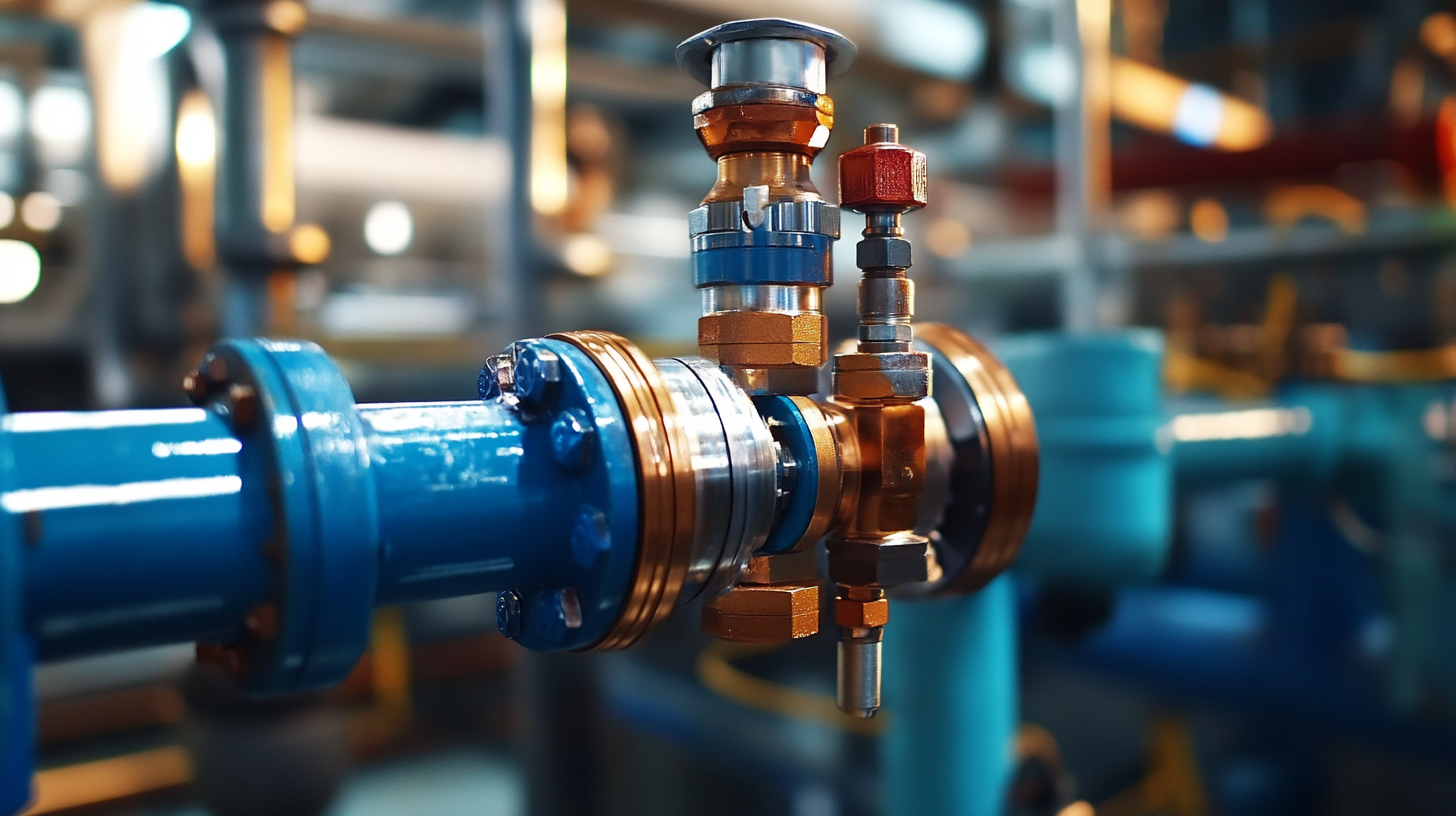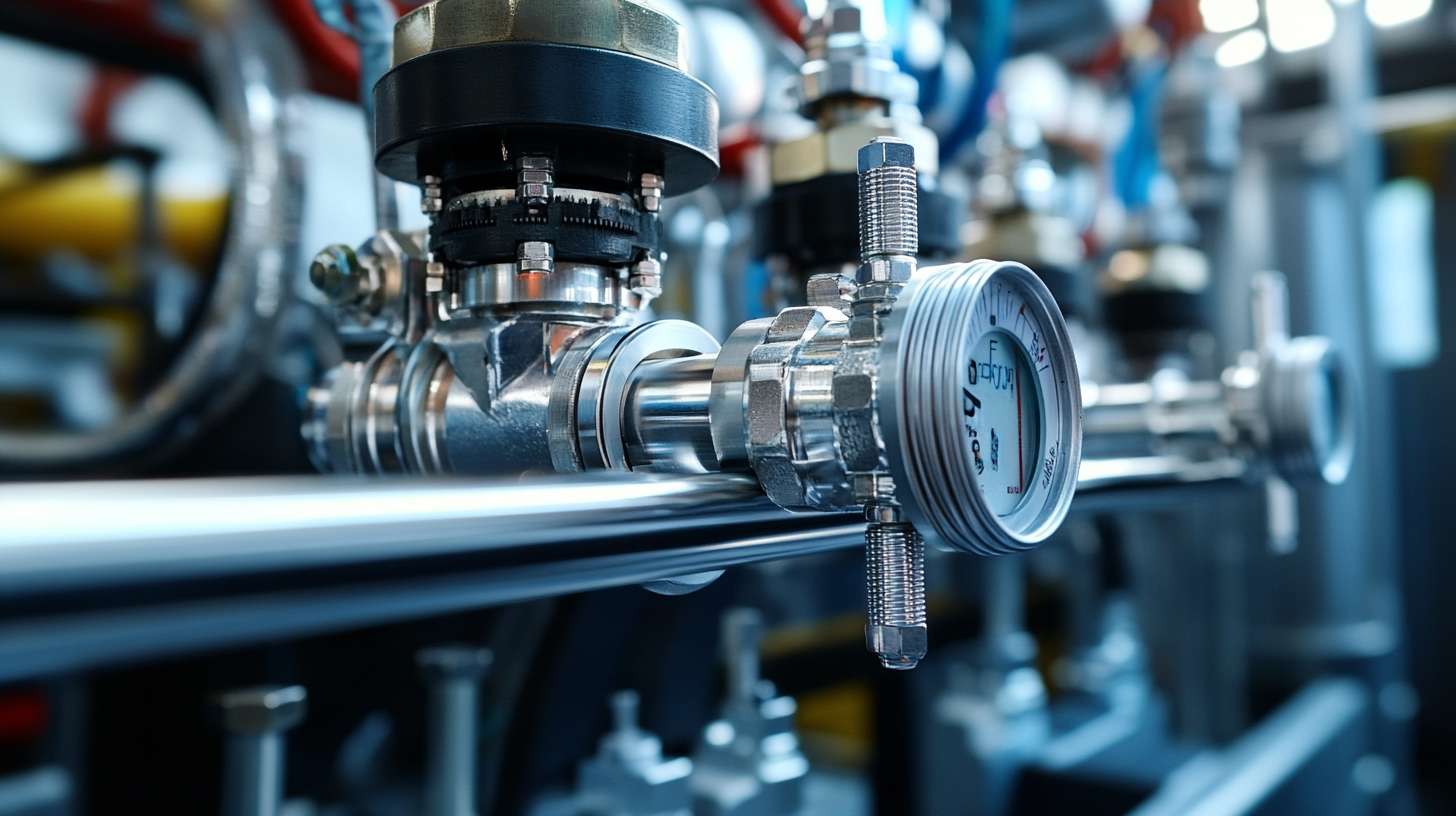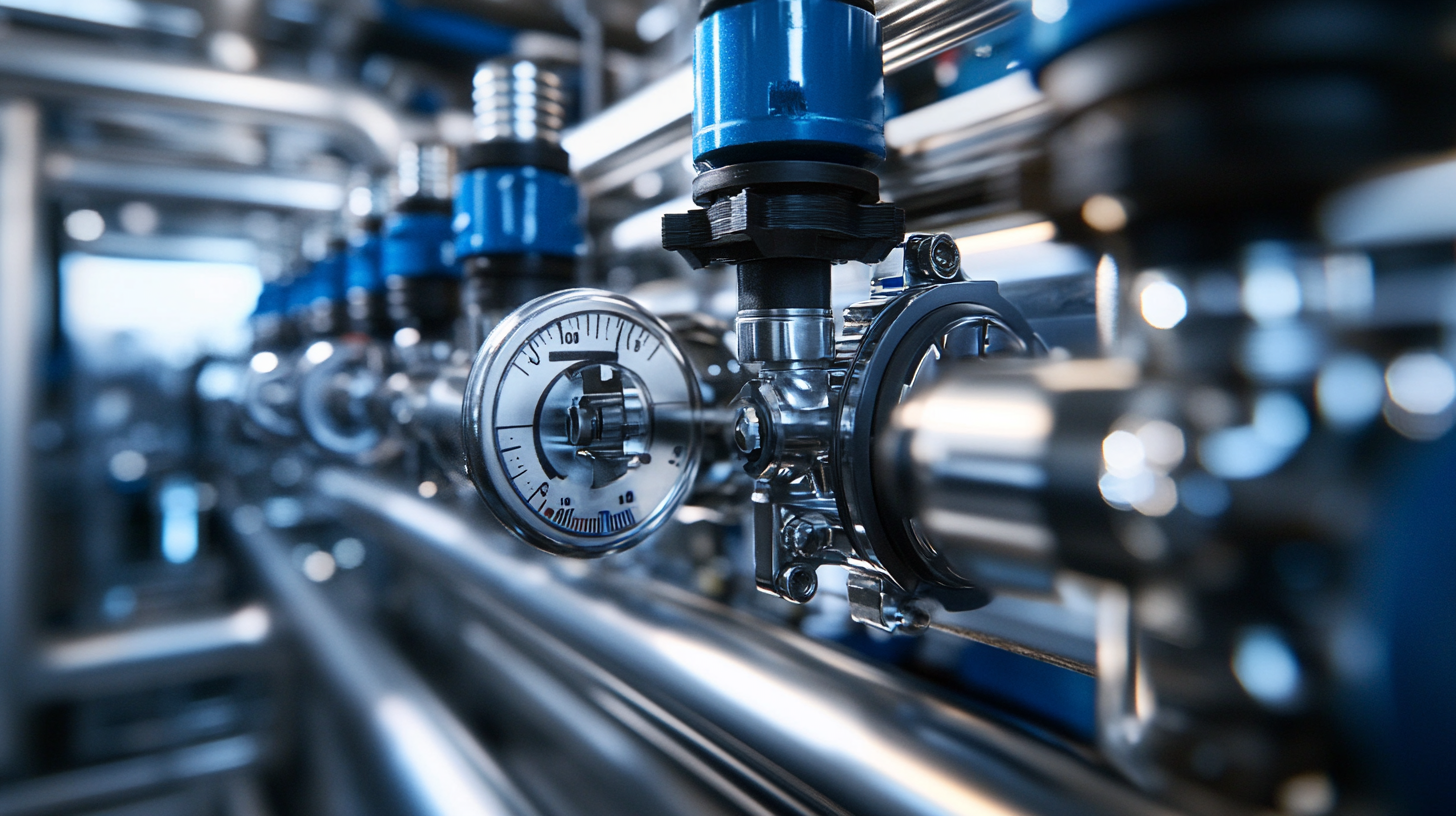Exploring Diverse Alternatives for Optimal Performance of Best Pneumatic Control Valves
In the dynamic landscape of industrial automation, the demand for efficient and reliable Pneumatic Control Valves continues to escalate, driven by the need for enhanced process control and operational efficiency. According to a recent market analysis by Research and Markets, the global pneumatic actuator market is projected to reach $8.66 billion by 2025, with a significant contribution from pneumatic control valves, which are critical for regulating the flow of gases and liquids. This surge reflects not only the growth in sectors like oil and gas, water treatment, and food processing but also the push towards digitization and smart technologies in valve systems. As industries strive for optimal performance and sustainability, exploring diverse alternatives in the design and application of pneumatic control valves becomes paramount. This blog delves into the innovative options available in the market, offering valuable insights and practical tips for industry professionals seeking to enhance their operational effectiveness.

Identifying Key Qualities in Top Pneumatic Control Valve Suppliers
When searching for the top pneumatic control valve suppliers, it is essential to identify the key qualities that set the best apart from the rest. One of the foremost attributes to consider is their expertise in manufacturing high-performance valves that meet rigorous industry standards. A supplier with a history of successful projects and satisfied clients can provide peace of mind, ensuring that their products will perform reliably under various conditions.
Another critical quality is innovation in design and technology. The best suppliers invest in research and development to offer advanced solutions that enhance operational efficiency. This includes the integration of smart technologies for real-time monitoring and control, allowing businesses to optimize their processes. Additionally, a supplier’s ability to provide customized solutions tailored to specific industry needs can significantly impact performance outcomes.
By prioritizing these qualities, companies can make informed decisions that enhance their operational capabilities.
Evaluating Supplier Credentials and Industry Experience
When selecting the best pneumatic control valves for optimal performance, evaluating supplier credentials and industry experience is crucial. According to a recent report by MarketsandMarkets, the global pneumatic valve market is expected to reach USD 10.38 billion by 2026, underscoring the intense competition among suppliers. High-quality valve manufacturers often have extensive industry experience, typically exceeding 15 years in the field. This longevity not only signifies reliability but also a deep understanding of the evolving industry standards.
Furthermore, suppliers with robust certifications, such as ISO 9001:2015, can indicate a commitment to quality management systems. Research shows that companies holding such certifications often experience up to 20% higher customer satisfaction rates compared to those without. A firm’s ability to demonstrate expertise through case studies or client testimonials further corroborates their capability in delivering effective solutions tailored to your specific pneumatic needs. Thus, conducting a thorough assessment of potential suppliers ensures that businesses can achieve optimal performance in their pneumatic control systems.
Exploring Diverse Alternatives for Optimal Performance of Best Pneumatic Control Valves
| Supplier Experience (Years) | Industry Applications | Control Valve Type | Material Options | Certifications |
|---|---|---|---|---|
| 15 | Oil & Gas, Chemical | Globe Valve | Stainless Steel, Brass | ISO 9001, ATEX |
| 10 | Water Treatment, HVAC | Ball Valve | PVC, CPVC | CE, NSF |
| 8 | Food & Beverage, Pharmaceutical | Butterfly Valve | Hastelloy, PTFE | FDA, UL |
| 20 | Power Generation, Mining | Diaphragm Valve | Carbon Steel, Alloy | API 607, ISO 14001 |
Understanding the Importance of Quality Certification in Valve Supply
In the realm of pneumatic control valves, quality certification has emerged as a critical factor in ensuring reliability and performance. According to a report by MarketsandMarkets, the global valve market is projected to reach USD 93.5 billion by 2026, with quality assurance becoming a top priority among manufacturers. Certification standards such as ISO 9001 and API 6D not only signify a commitment to consistent quality but also enhance consumer confidence. These standards help in mitigating risks associated with faulty valves, which can lead to system inefficiencies and increased operational costs.
Furthermore, research from the International Journal of Industrial Engineering highlights that companies that prioritize quality certification in their supply chain see a 25% reduction in maintenance costs and a 15% increase in overall productivity. This underscores the importance of selecting suppliers with accredited quality certifications, as it ensures that the pneumatic control valves meet rigorous industry standards. As industries strive for optimal performance and minimal downtime, investing in certified products becomes essential for maintaining operational excellence and gaining a competitive edge.

Exploring Supplier Innovation and Technology Integration
In today's fast-paced industrial landscape, the need for optimal performance in pneumatic control valves has led to a surge in supplier innovation and technology integration. Suppliers are now focusing on advanced engineering solutions and smart technologies that enhance valve efficiency and reliability. Through the adoption of Internet of Things (IoT) applications, many control valves are being equipped with sensors that provide real-time data on their performance. This allows operators to monitor and adjust the operations remotely, ensuring that systems run smoothly and effectively.
Moreover, collaboration between technology providers and valve manufacturers is fostering significant breakthroughs in performance enhancement. By leveraging cutting-edge materials and designs, suppliers can deliver valves that not only perform better but also exhibit longer service life and reduced maintenance costs. Integrating artificial intelligence (AI) within pneumatic systems enables predictive maintenance, allowing businesses to anticipate potential failures and minimize downtime. As the industry evolves, these innovative approaches are setting new benchmarks for pneumatic control valves, aiming for peak operational efficiency that meets the demands of modern applications.

Assessing Supply Chain Reliability and Customer Support Services
In the dynamic landscape of pneumatic control valves, ensuring supply chain reliability and exceptional customer support services is critical for optimal performance. According to a report by MarketsandMarkets, the global pneumatic valve market is projected to reach $5.91 billion by 2026, indicating a robust growth driven by increasing automation across industries. However, this growth can only be sustained if manufacturers and suppliers prioritize reliable supply chains to meet the rising demand for high-quality pneumatic control valves. Disruptions in supply chains can lead to production delays and increased costs, underscoring the importance of robust logistics and inventory management systems.
Furthermore, customer support services play a pivotal role in the successful implementation of pneumatic control valve systems. A survey conducted by Customer Service Institute revealed that 70% of customers are willing to pay more for superior customer service. This statistic highlights the need for companies to invest in training their support staff and adopting advanced support technologies. With the integration of AI-driven support tools, businesses can provide timely and efficient solutions to their clients, ensuring minimal downtime and enhanced satisfaction. Therefore, focusing on supply chain reliability and strong customer support can significantly enhance the performance and reliability of pneumatic control valves in various industrial applications.
